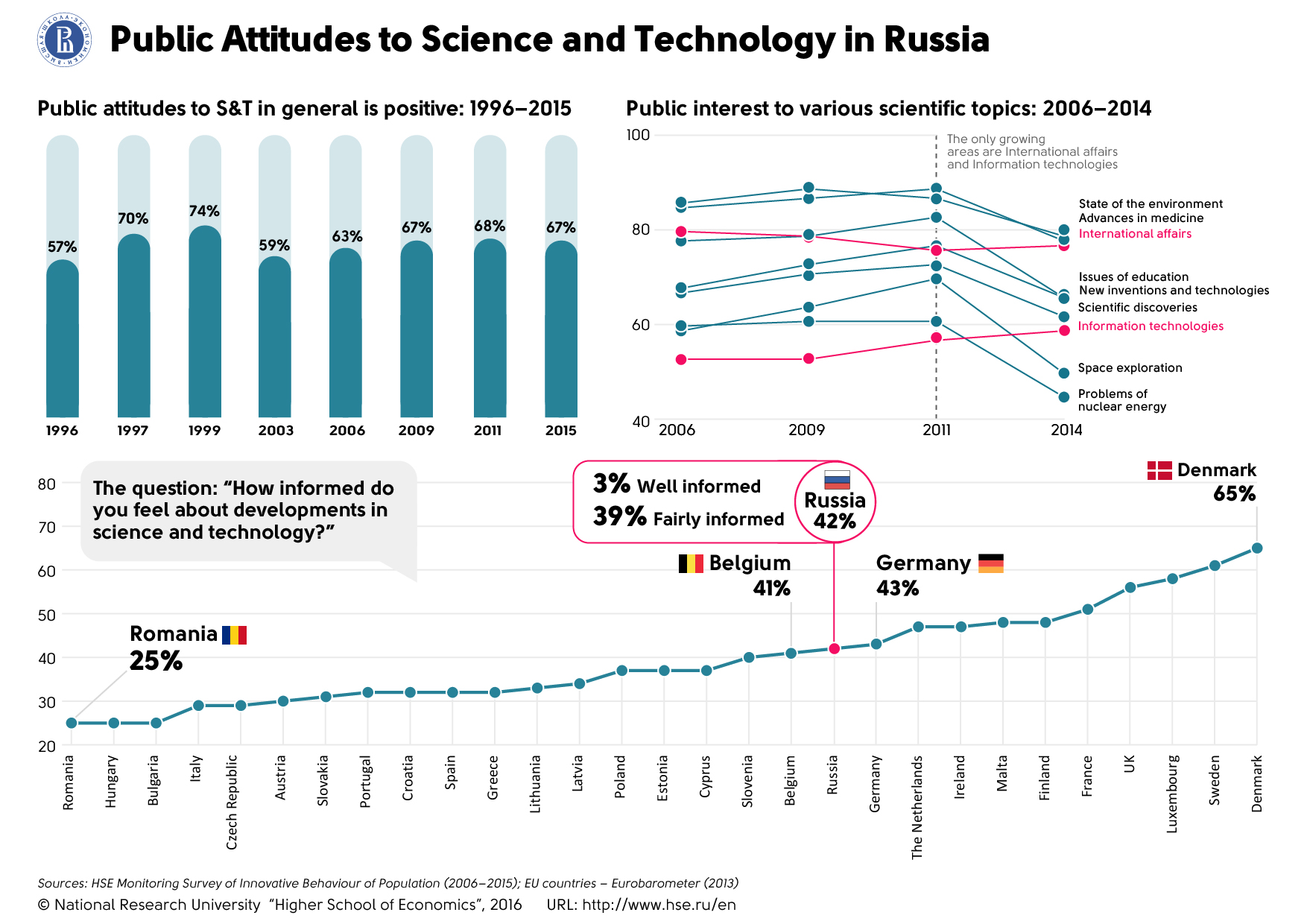Not Aware but Beware: Russians’ Paradoxical Attitude to Achievements in Research
This data was received in several waves of a survey conducted by the HSE Institute for Statistical Studies and Economics of Knowledge (ISSEK) as part of the Monitoring of Innovative Behavior of the Population, which was implemented from 1996 to 2015.

According to survey data over the last 10 years, public interest in scientific issues consistently grew between 2006 and 2011. This trend reversed dramatically in 2014 showing a decrease in interest in all the fields except international policy and IT. Education, nuclear energy and space exploration suffered from the greatest decline in interest.
The reason for this may be an overall change in the media’s information agenda and priorities, believes Konstantin Fursov, head of the monitoring project and Head of the ISSEK Unit for Analysis of R&D Performance. ‘It’s worth mentioning that science news has never been a priority in the Russian population’s information preferences (medical achievements are an exception). But the amount of international political news which we’ve been watching over the last two years has decreased the importance of news on research and innovative development. The growing interest in IT might come from the fact that this is related to getting information from various sources, such as internet media, social media, blogs etc.’, the expert concluded.
The attitude toward science among Russians remained generally positive during the whole period of the observations: the majority of Russians believe that science does more good than harm. 42% of Russians are fairly well informed about science and technology achievements. Russia ranks 11th by this indicator compared with 28 countries in Europe, where a similar survey was conducted.
The data on the sources of information on science and technology achievements seems rather paradoxical. 27% of Russians stated that they are not interested in information about science and technology when asked about the sources of such information. This puts Russia 5th place from bottom when compared to the European Union. The share of those who read popular science press in Russia is four times less than in Europe on average.
‘Two interesting assumptions may come from this. First, Russians largely have a positive attitude to science: even with a declining level of interest in scientific issues, the image of science remains generally positive. Second, they rate their awareness about science and technology high, while in fact they are not very actively involved in popular science discourse’, said Konstantin Fursov.
